29 Hotel trends shaping the industry in 2025 and beyond
Oaky
•
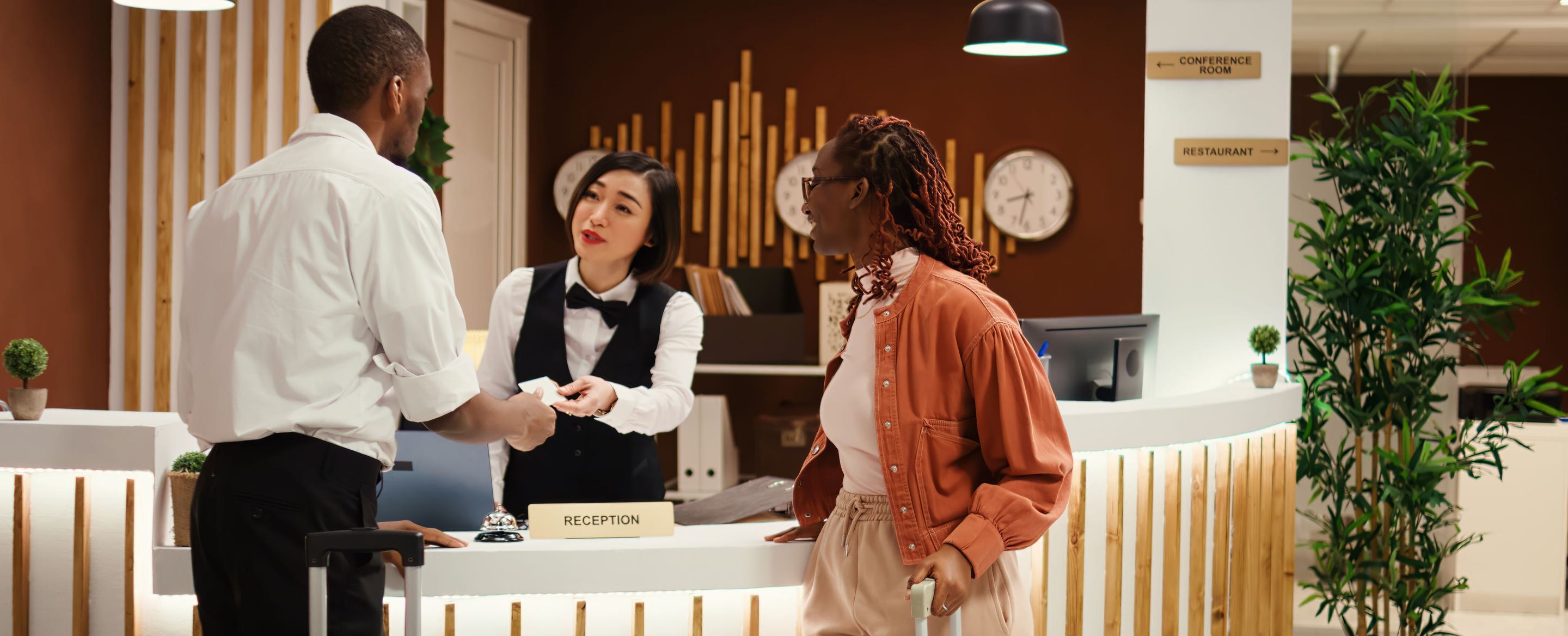
Sustainability, smart technology, and spaces doubling up as meeting rooms and cinemas—these were some of the key hospitality trends that shaped booking behavior in 2024.
In 2025, travelers will continue to travel more smartly, whether that’s via visiting a lesser-known destination or using voice control technology.
We’ve checked reports from thought leaders in the hospitality industry like Hilton, Expedia, Skift, and Oracle to uncover future trends expected to impact hospitality. Here’s how hoteliers should shape their offerings to match guests’ changing and growing expectations.
Hotel trends shaping the industry in 2025 and beyond
To help you easily digest the volume of information, we’ve divided 2025’s hotel trends into three main groups:
Guest behavior trends — explore how guest behavior and preferences have changed and what guests expect from their hotel experiences.
Hotel technology trends — dive deeper into the advancements and innovations in hotel technology.
Hotel marketing trends — discover marketing strategies and approaches you need to use to reach potential guests.
Guest behavior trends
1. Sustainability and eco-friendly initiatives
Sustainability is practically on everyone’s lips (and hopefully minds too). The international tourism industry in particular needs to prioritize sustainability as air travel is one of the big contributors of carbon dioxide emissions.
As travelers are becoming more interested in eco-friendly travel and traveling by foot isn’t an option, they’re searching for other ways to lower their carbon footprint. This means that the only real way they can make a difference is by booking eco-friendly accommodation and services that incorporate sustainable practices.
Aside from the obvious answer — reducing energy consumption, hotels can also:
Invest in renewable energy sources
Minimize food waste by donating leftover food to local charities
Reduce plastic usage by using sustainable materials where possible
Offer guests the option to plant a tree in exchange for skipping daily housekeeping.
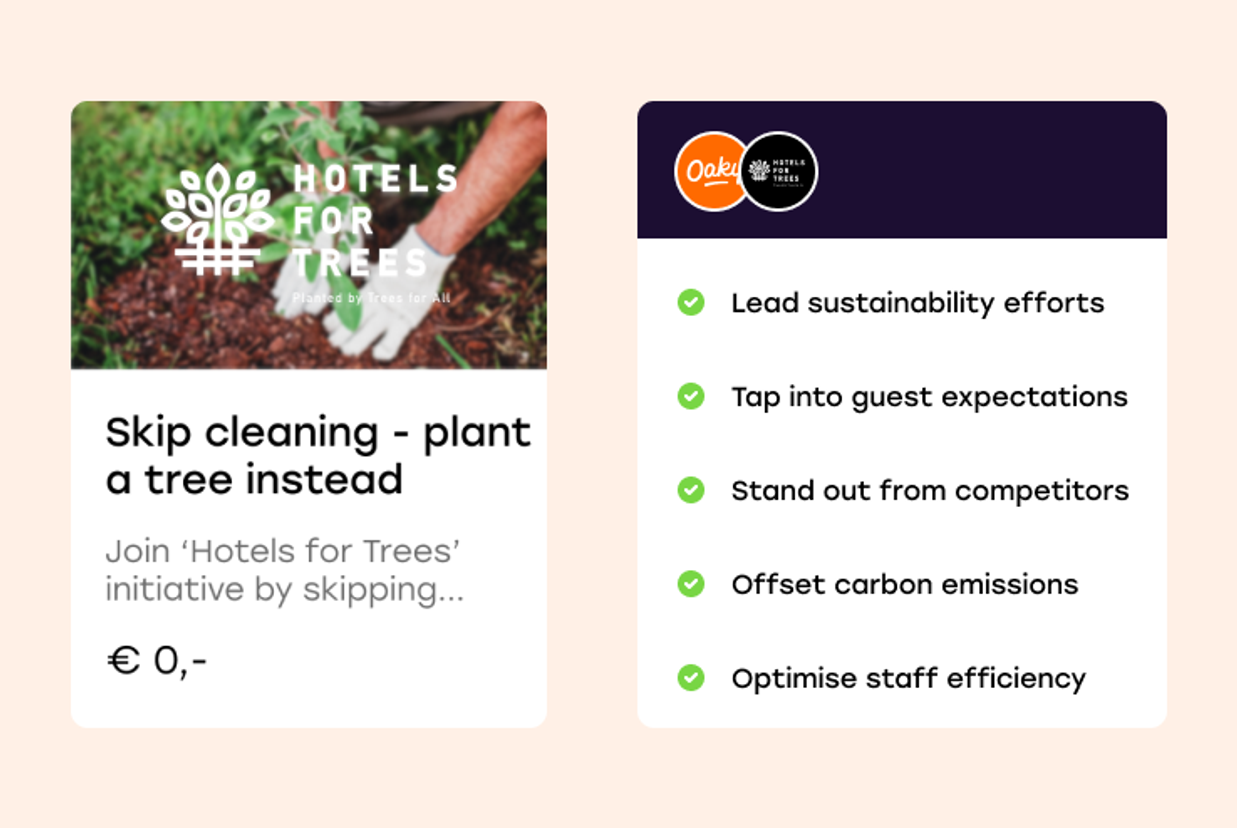
2. Personalized guest experiences
Personalization has been a buzzword for a couple of years. Online stores and mobile apps have widely adopted it. This has created an expectation among hotel guests that booking their stay should also be a tailored experience.
What personalization looks like in the hotel industry is adapting your services to the available data about the guest. It’s easier to personalize stays for returning guests, as you’ll have more information about their preferences. Knowing which guest segment they fall under will already help you to tailor your offering.
Upselling software for hotels like Oaky can connect the dots between creating personalized experiences at a hotel and letting guests make use of them. Moreover, it’s an opportunity to monetize the efforts you put into crafting them.
3. Remote work
Like personalization, remote work has been trending for a couple of years now. Accelerated by the pandemic, increasingly more companies are adopting flexible policies. Travelers are using this to their advantage more often by choosing to work from anywhere or combining business trips with leisure (referred to as bleisure travel or blended trips).
Plus, these trips don’t necessarily need to be aimed at solo travelers solely. According to Hilton’s Annual Report, in 2024, there’s been an increase in “frolleagues” (colleagues who are also friends) traveling together. In fact, 25% of business travelers expect that they’ll travel for team building in 2025.
To cater to this growing segment, you can:
Fast-track your digital transformation by upgrading your Wi-Fi and making the check-in process available via mobile, for example
Offer team-building activities
Include pet-friendly accommodation
Where possible, add coworking spaces and meeting rooms
Provide discounts or special offers for extended trips
Include meals and amenities geared towards a healthy lifestyle so that hotel guests can stick to their normal routine when away from home
Promote leisure amenities (wellness treatments, spas, saunas, gym, yoga center, etc.).
4. Solo travelers or MeMooners
First, there were honeymooners. Then, came babymooners. Now, it’s MeMooners (solo travelers who are traveling for leisure purposes).
That said, a “MeMoon” isn’t necessarily the next trip after a honeymoon and/or babymoon. In fact, it’s hugely popular among younger travelers. A global study completed in 2024 revealed that about 75% of Gen Z and millennial travelers planned a solo trip that year.
In 2025, this trend will increase. According to Hilton, more than 58% of their team member respondents anticipate that solo travel will be more popular in 2025.
Here’s how hotels can cater to this growing number of individual travelers:
Design your restaurant in such a way that it welcomes “a table for one”. You can, for example, include more seating at the bar or add a window seat that overlooks the street.
Solo travelers also love the company of a good book. Create enough quiet spaces where travelers can read or invite guests to join an hour of silent reading in the garden.
5. Goods getaways
While all getaways are hopefully good, not all involve shopping for goods.
For this trend, you can give credit to TikTok.
According to Expedia, the social media platform is encouraging travelers to book trips with the goal of finding specialty goods. Based on Expedia’s global activities data for the first seven months of 2024, the following are examples of the most popular goods getaways:
Coffee tours in Costa Rica
Tea tastings in China
Matcha experiences in Japan.
6. Slow travel and focus on local experiences
In 2025, more travelers might buy local, specialty goods, but it doesn’t replace the desire to enjoy experiences. To get lost in another’s culture is sometimes the best way to travel.
The 2025 Hilton Trends Report reveals that “Slow Travel” (a practice that sees travelers immersing themselves into the destination’s local cultures) will quickly gain momentum. Secondary destinations, in particular, will welcome more tourists as “slow travelers” are avoiding the fast-paced lifestyle of tourist hotspots.
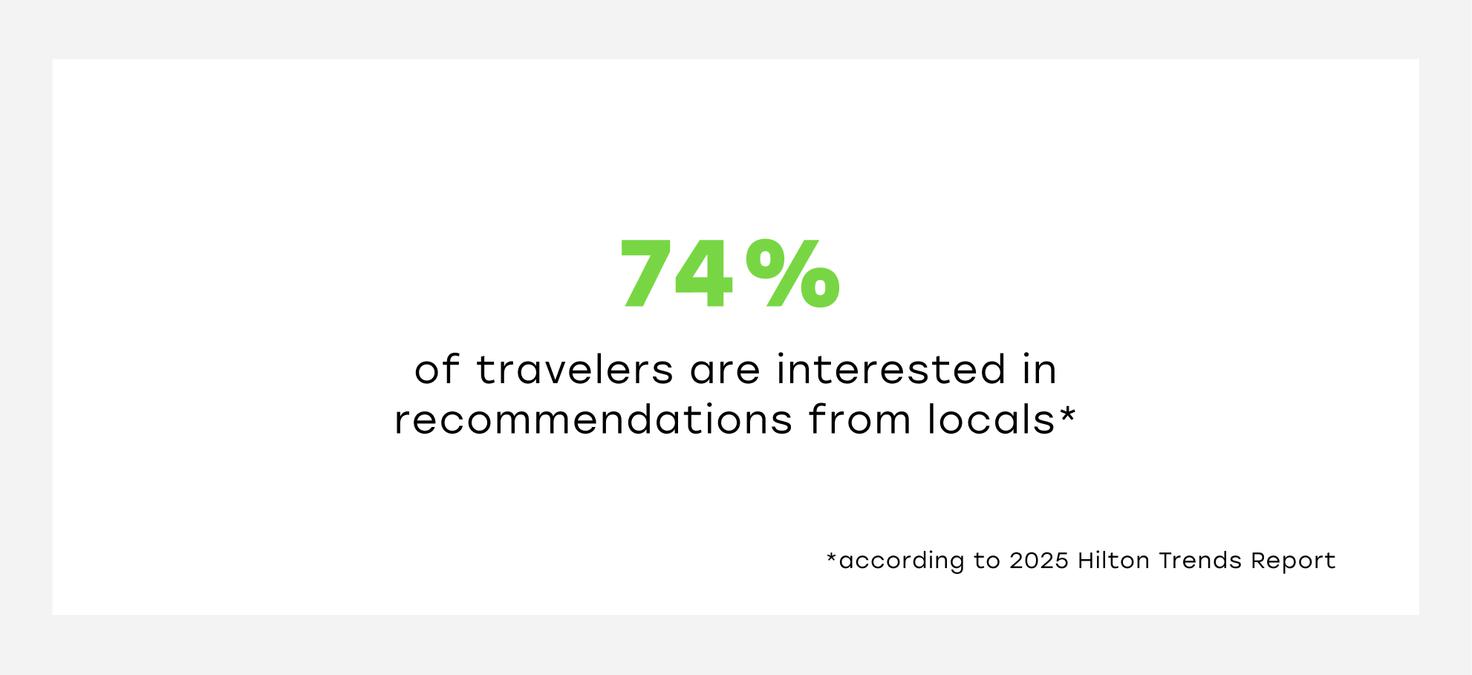
Hotels looking to cater to this segment can work with local travel guides and companies. According to Hilton, 74% of travelers are interested in recommendations from locals.
7. Detour destinations
Like Hilton, Expedia also anticipates that in 2025 popular hotspots won’t be the (only) attraction. Increasingly, more travelers are including a detour to their itinerary, with 63% planning to visit a destination near a popular hotspot, too.
For example, travelers visiting Dubai include Abu Dhabi, while Santa Barbara in California will be added as a detour stop to a Los Angeles trip.
8. The rise of adventure travel
The rise of adventure travel According to the 2025 Hilton Trends Report, 20% of travelers will seek an outdoor adventure in the new year. Even if your hotel isn’t close to outdoor adventure activities, you can still capitalize on this trend.
Hilton’s data also reveals that 69% of global travelers enjoy being active when they travel. What’s more, 76% are specifically searching for accommodation that offers a wide range of experiences.
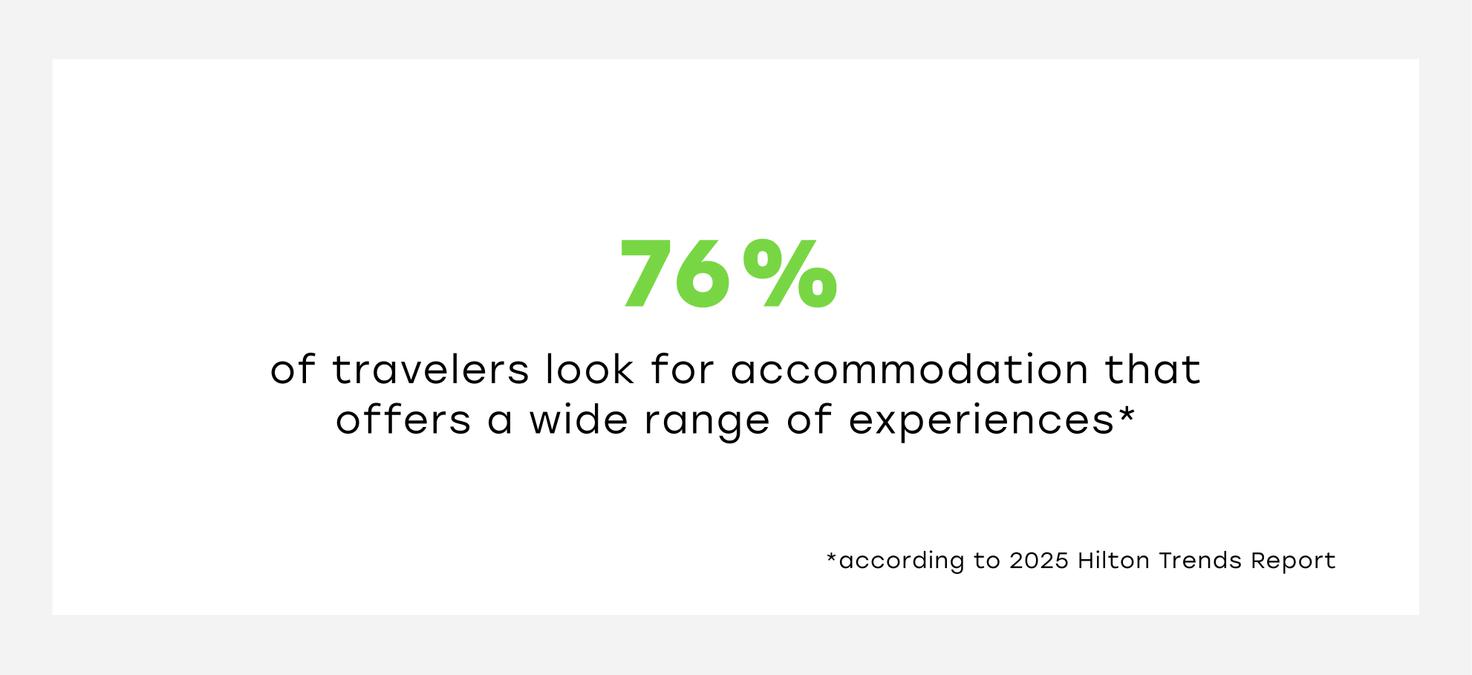
9. All-inclusive resorts reigning supreme among Gen Z
Expedia reports that the target audience of all-inclusive hotels is no longer restricted to families. According to their data, 33% of Gen Z travelers view this type of accommodation more positively, with about 4 out of 10 making it their preferred hotel stay.
Convenience is a big driver. Gen Zs are finding it less stressful, specifically the booking process. At the same time, they’re drawn by the feeling of luxury these hotels have to offer.
10. Nostalgia trips
Nostalgia trips are especially popular among your family segment. Hilton found that 58% of global travelers revisit a childhood travel destination when vacationing with their kids.
Considering that 49% like to return to the same place each year, hotels can tap into this trend further by offering loyalty programs.
Another way that you can leverage this trend is by adding themed guest rooms. Even better yet if the themed room is a connecting room, allowing adults and kids to time travel individually too.
11. JOMO trips
Goodbye, FOMO; hello, JOMO. Instead of being driven by the fear of missing out, travelers are embracing the joy of missing out (or rather not doing it all).
In 2025, you have permission to cut back on the activities that you offer. Instead, focus on how your activities can improve the time spent at your accommodation.
12. Traveling with the purpose of seeing a natural phenomenon or film setting
TikTok isn’t the only entertainment source that’s serving up some travel inspo. The Expedia Group has also found that movies and TV shows encourage travelers to visit certain locations.
While the travel company has already identified this trend referred to as “set-jetting” in 2022, like a classic movie, its popularity hasn’t waned. Almost 30% of travelers admit that TV and the big screen influence their travel plans more than before.
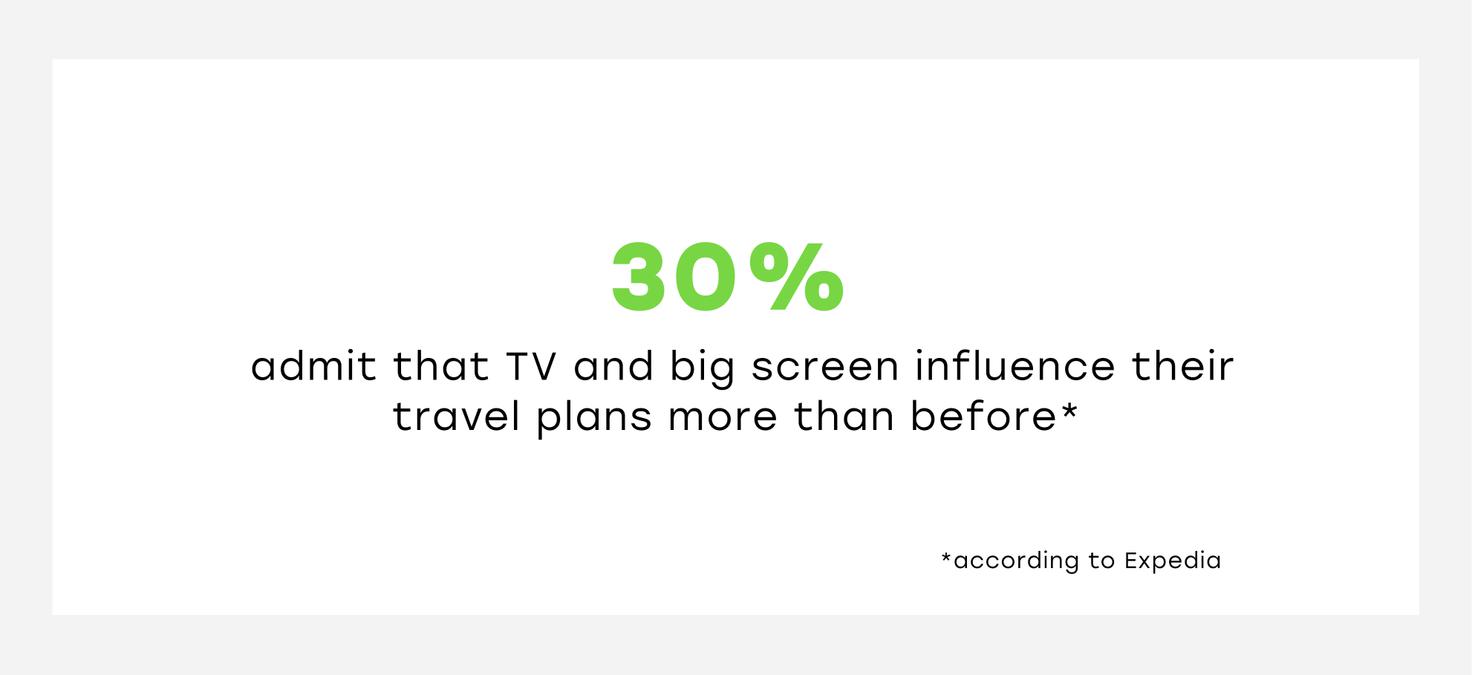
13. Wellness experiences
From divorce retreats to digital detoxes, travelers are planning holidays with the sole purpose of giving attention to their emotional well-being. In fact, according to the Global Wellness Institute, the market size of wellness tourism is expected to double between 2022 and 2027 and will reach a projected market size of over $1 trillion in 2025.
Hotels can optimize their properties for wellness travelers by including wellness amenities or services that also present great upselling opportunities. Spas, massages, an onsite gym, and yoga classes on the beach are just some popular ideas.
14. Sleep tourism
Another trend that shows travelers are learning that travel is a time to slow down and find joy in not having to do it all is the emergence of sleep tourism. It has dawned upon guests that a good night’s rest should be added to their to-do list.
For hotels, this means adding high-quality mattresses and bedding to their to-buy list. Considering that Skift found that most travelers will pay a premium for travel packages with sleep-focused amenities, these are expenses that you’ll recuperate.

15. Hotel restaurant renaissance
Dining at a hotel’s onsite restaurant is making a comeback, especially in the UK. Data shared by the Expedia Group reveals that about a third of British guests will be more likely to book if restaurant tables were reserved exclusively for hotel guests.
You can make the experience even more exclusive by serving local cuisine. This way, local experiences are becoming more accessible.
16. Vegetarian and vegan options
One of the benefits of including more vegetarian and vegan options is that it will boost your sustainability efforts. It will also make your hotel more attractive to younger generations. About a quarter of Gen Z and millennials have either followed a vegetarian/vegan diet or planned to do so in 2024, according to an online survey exploring actions taken against climate change.
Given that the majority of travelers are actually millennials, it makes sense to embrace vegetarian menus to cater to the expectations of this age group.
Aside from introducing vegan and vegetarian options into your breakfast, lunch, and dinner menus, you can also extend it to your wellness amenities. Only using cruelty-free body products can be a great unique selling proposition.
Hotel technology trends
17. Artificial intelligence (AI)
AI is one of the current emerging trends across various industries. New technologies like AI-powered chatbots can be of particular great use to hotel management. It can speed up the booking process by answering prospective guests’ questions and, at the same time, help them deal with hotel staff shortages.
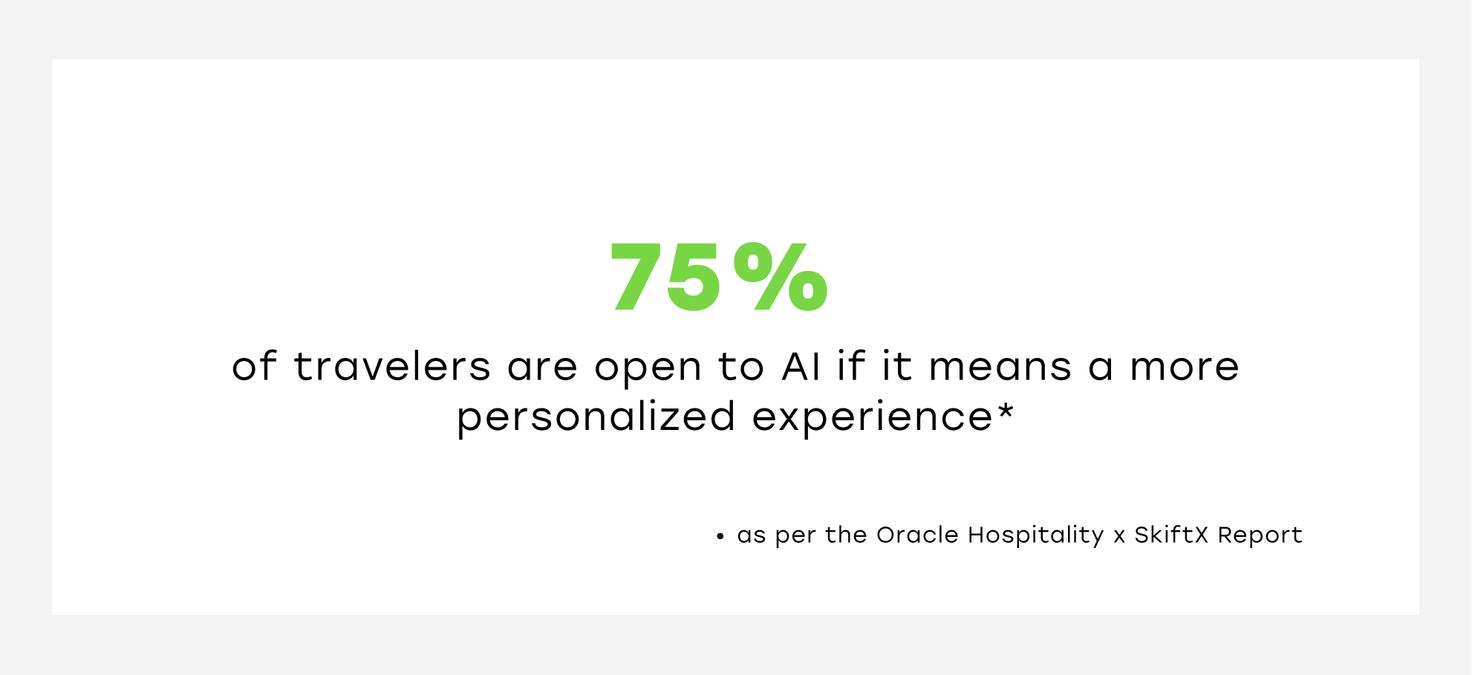
According to data analysis completed by Oracle Hospitality in partnership with SkiftX, about 75% of travelers are open to AI if it means a more personalized guest experience. If it will benefit them directly, they’re happy to share personal data with hotels.
18. Smart hotel rooms
From voice-controlled assistants to smart thermostats to IoT devices for room service requests, there are various technological features and amenities that you can add to create smart hotel rooms. While adding smart rooms to your room inventory is in line with the latest hospitality trends, a common concern is cost.
Here’s why it offers enough value to offset the initial investment needed to implement the idea:
Guests will enjoy more convenience and memorable experiences.
Hotel operations will become more efficient and sustainable.
It adds that touch of luxury and sophistication to appeal to luxury travelers who are big spenders.
19. Virtual reality tours
For hotels looking to incorporate innovative technology, there’s virtual reality (VR). Over 66% of guests have indicated in the Skift + Oracle Hospitality survey that they’re interested in using VR to tour a hotel prior to booking.
What makes it so applicable to the hotel sector is that it can be used to create immersive experiences. This makes it easier for guests to picture themselves enjoying the local attractions and amenities on offer.
Virtual tours also allow hotels to communicate more information in a format that’s easy to digest. Imagine how many pages of content you would have to create to describe all the amenities in detail and how long that would take to read. With a virtual reality hotel tour, you’ll need only a few minutes.
20. Data privacy and cybersecurity
As mentioned earlier, guest data is critical for many hotel operations. Hotels need it for data-driven decision-making that will personalize communication and upselling deals.
When using guest data, it’s crucial that hotels have systems in place to protect the guests’ data. Hospitality businesses are one of the top three industries that hackers target the most, according to the Financial Times.
About a quarter of hotel execs are planning to invest in cloud technology to improve data security in the next two years, making this a top trend to track in 2025 and the following year.
21. Voice search
Another way that hospitality companies can streamline the booking process is with voice search. This way, instead of having to type out hard-to-spell destinations like Massachusetts, for example, guests can use voice input.
Expect to see this trend drive mobile and last-minute bookings specifically.
22. Mobile first is mandatory
Almost half of the 18,000 respondents who participated in a survey that looked at how travelers use their mobile devices to plan trips used either a tablet or phone to research destinations. This means that if your hotel’s website isn’t designed for mobile devices, you’ll probably already drop out during the research phase.
Then, when it’s time to book, about a third of travelers do so via their mobile device, according to Euromonitor.
One of the reasons why mobile devices are generating more bookings is because many hotel groups are creating booking apps. So, when adopting a mobile-first mindset, it extends beyond simply updating your website design but also consider investing in a hotel app to drive guest interaction and bookings.
23. Contactless tech
Like flexible working policies, widespread adoption of contactless tech is one of the long-lasting impacts of the pandemic. Offering a mobile check-in option is one of the most popular ways that hotels are introducing contactless tech.
That being said, it’s key to keep in mind that, like in the case of AI, not all guests are fans of this trend. Guests booking a stay at luxury properties in particular might find it a detractor as they still expect face-to-face connection at check-in. The best approach is to offer guests both options—mobile check-ins or in-person, check-in at the front desk.
Marketing trends in the hospitality industry
24. Video marketing
As mentioned earlier, short-form video content, in particular, has found favor among travelers. When shared on social media like TikTok or Instagram, it’s more effective than static posts to get users to stop scrolling and take note. Plus, message recall is much higher than using text alone.
Hotels that are mainly targeting Gen Z travelers should especially keep this in mind. It’s much easier to reach younger travelers via social media marketing and video content. Find out which channels your target audience visits frequently and optimize your videos as per the channel’s specs.
25. Hyper-personalized marketing campaigns
Personalization is one of the major hotel marketing trends. Though, to do it properly, you need to personalize each step of the guest journey.
Hyper-personalized marketing campaigns involve tailoring messages and offers to individual guests based on their preferences, behaviors, and demographics.
Some of the examples of this type of marketing can be personalized email marketing campaigns, targeted ads, creating customized offers and packages based on the previous booking history of your guests, etc.
Again, to bring hyper-personalized marketing campaigns to life, you need ample guest data and know the channels where they prefer to consume information.
26. Influencer marketing
Travelers trust influencers’ opinions. In a time where personalization is an expectation, influencer marketing adds another element of authenticity.
Hotels should try to work with micro-influencers. While they have fewer followers, their audiences are more engaged. This way, hotels can reach guests who’ll truly resonate with their offering.

27. One-click trips
Social media is a great source for travel ideas. However, Expedia reveals that 50% don’t turn these ideas into an idyllic holiday because it’s too difficult to book.
To remove the friction in the booking process, Expedia launched Travel Shops. This new feature on its app lets travel influencers share their recommendations conveniently via one place.
Hotels can take a leaf out of Expedia’s book and look at how they can streamline their own booking process.
28. TikTok and Instagram will be the main drivers of direct bookings
A Booking.com survey reveals that after word of mouth, social media is the leading information source, with 39% of global travelers turning to these channels for ideas. In 2024, nearly two out of 10 travelers used short social videos, making platforms like TikTok and Instagram especially effective. It’s nearly double as popular among younger guests, with 44% of Gen Z and 32% of millennials turning to short-form videos.
As mentioned earlier, more travelers want to book trips within one click. As such, going forward, these platforms won’t only be used as a marketing platform but also a sales channel.
29. Gamification
Gamification is a trend in the hotel industry that involves applying elements of game design and mechanics to hotel operations and guest experiences. The goal is to engage guests and hotel employees, motivate behavior, and enhance the overall guest experience through interactive and entertaining activities.
While the idea of integrating gamification into hotel operations and guest experiences is not new, it has been evolving over the past years.
As technology advances, hotels start incorporating gamified elements into their loyalty programs, hotel app, websites, and on-site experiences or pre-arrival guest engagement. For example, hotel groups such as Accor Hotels, Marriott International, and Hilton Hotels have included gamification elements in their loyalty programs to incentivize guests and drive repeat business.
Final thoughts
Personalization is the golden thread tying many of these hotel trends together. They clearly show the importance of deciding on a target audience. While all your guests should feel welcome and equal, you should find ways that you can tailor the experience towards specific guests and ensure that these experiences speak to their needs. For many, this will be driven by their desire to travel more sustainably and get inspired by unique locations and authentic experiences.

